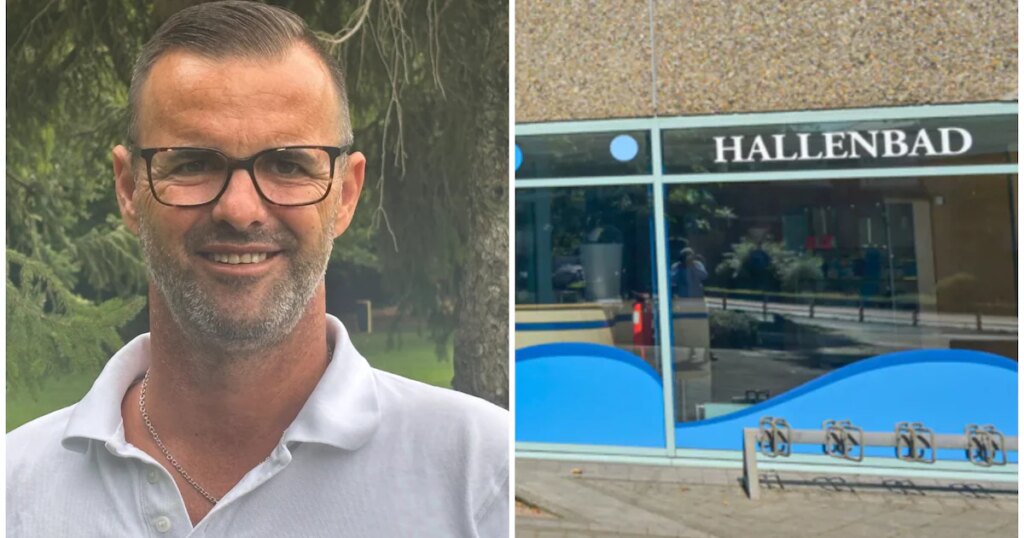
The pool alliance demands one billion euros per year. The federal government decided to provide 250 million euros – plus 20 million euros for swimming lessons. This is at best a start.
When I read that on November 13, 2025, the Bundestag Budget Committee decided 250 million euros for the renovation of dilapidated swimming pools and an additional 20 million euros in 2029 for “Germans learn to swim,” at first I nodded. It was finally a sign. A step that has been lost for a long time.
But a few minutes later I realized that I read this decision with very mixed feelings. Not because of politics – but because of the fact that someone has worked in bathrooms for two decades and experiences every day what works and what fails. Because I can say one thing: paper and practice are two very different worlds in the bathroom sector.
20 million euros – helps, but doesn’t change things
Many people now believe: more courses, less waiting time, more safety. But that’s not how it works. This fund of 20 million euros is a fund that is valid until 2029. The fund is intended to start projects, enable cooperation and especially help children from poor families. This is true and important. But this doesn’t change our biggest problem: There are more children than there are courses.
Not because of the money, but because of two real facts:
- too little water
- too few staff
Every day I experience parents asking when they will finally get a place. I see kids who should have started long ago but are still waiting months. And I look at schools that offer swimming – if they have a free pool somewhere. Money can create motivation. But this does not replace time or skilled workers.
Without staff, everything stops and this is often overlooked
You can renovate a bathroom, modernize a building, lay new tiles – but you can’t train a specialist in three months. This is a point that no one likes to say out loud. In everyday life what is meant is:
- One person can’t make it – and suddenly all opening hours are suspended.
- A course instructor got sick – and the entire course had to be cancelled.
- The bathroom has a free pool area – but no one can supervise it.
I know the changes we have to fight every hour. Not because we don’t want to, but because we can’t. The biggest gap in the system is not budget. He’s on the list.
250 million euros – also important, but not enough
It is good that this amount has been decided. No questions asked. However, many pools simply maintain their technology for years because they have no other alternative. Parts are patched, replaced, bridged – until one day they no longer work.
I know systems where the ventilation is turned off regularly. I know the pool used with temporary devices. I know technical spaces where you hope every day that everything will hold up.
250 million will help. They will save projects that may not open at all. But we must remain honest: Nationally, this is a start, not a solution.
There is one thing that really hurts me
The thing that hurts me the most is this: the weakest wait the longest. Children from families who don’t have much money have a hard time. Not because they want less. But since there is no access:
- Parents often don’t know where to ask.
- Many people don’t dare because they don’t want to “stand out”.
- Others are late to discussing this topic because everyday life overwhelms them.
I’ve seen children standing at the edge of an outdoor swimming pool, afraid someone would notice something. I’ve seen families apologize for being late – even though they didn’t do anything wrong. When we talk about support, we must remember these children.
Swimming is not leisure, it is safety
I’ve been saying this for years and I stand by it: learning to swim is part of basic child safety. Not as a sport, not as a show, but as a survival skill.
A child who can swim moves differently in the water. The breath is different. The reactions are different. And in an emergency, it has a chance. This has nothing to do with drama. This is everyday life for everyone standing by the pool.
That’s the point of all these numbers. Not about a better ceramic pool. Not about the new sauna signs. But about security.
What is really needed right now
If I break it down to the essentials after 20 years, what remains is:
1. We need skilled workers: Without people, bathrooms wouldn’t work. Point.
2. We need reliable opening hours: Families must be able to make plans. School too.
3. We need a renovated and stable bathroom: So that the course can take place – not cancelled.
No more. But less is impossible.
My conclusion
I am happy with Berlin’s decision. That’s important. You are right. But they only change things when the money actually ends up – in the water, not in the trash.
Because in the end only one thing matters: money doesn’t save children. Learning to swim saves a child. And this requires open pools, free water areas, and people who are ready to take responsibility. If 250 million and 20 million people can do this by 2029 – then this will be a real step forward.
Ralf Großmann grew up around swimming pools and has been involved in the swimming pool business since his childhood. At H2ohero.de he shares his experiences from the German pond – authentic, close to everyday life and with safety and quality in mind. He is part of our Expert Circle. The content represents his personal opinion based on his individual expertise.





